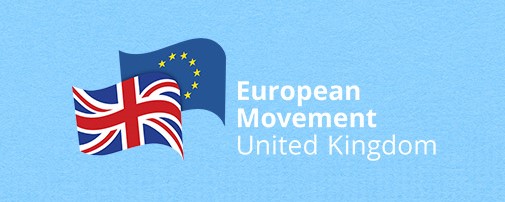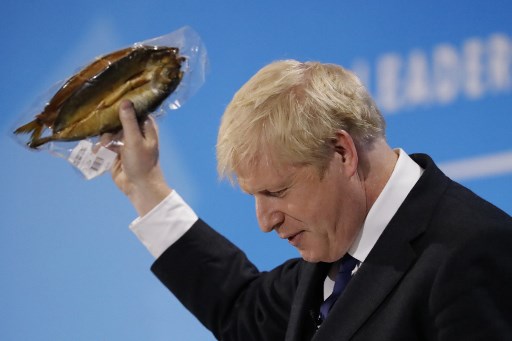
Bremainers Ask ……. Nick Harvey
Nick Harvey became CEO of European Movement UK in July 2023, having formerly served as a Liberal Democrat MP for North Devon (1992-2015) and Minister of State for the Armed Forces (2010-2012).
Nick was also CEO of the Liberal Democrats, and in Parliament served on the Home Affairs Select Committee, the Standards Committee and the Commission which runs Parliament. He was knighted in 2012.
Since leaving Parliament, Nick has served as Chair of the Joseph Rowntree Trust, as a director on charitable and company boards and has worked on capacity-building projects in developing democracies funded variously by the UK government, the EU and the UN.
Helen Markwood : Do you honestly think that we have a chance of becoming a member of the EU once more under a Labour government?
Yes – I genuinely do, but not in their first term. They have not made this part of their election platform, and indeed have ruled out EU membership or even the customs union or single market. So they could not claim any mandate. However, I do expect this election to be a game-changer, and to see a new government press a RESET button on our relationship with the EU. Some of the issues EMUK have been highlighting, such as Erasmus+, saving environmental standards, musicians and performers touring, market access, border and visa issues, can now be resolved if a positive, progressive government sits down with the EU and looks for mutually beneficial solutions. Each time the British public sees that happen, and our government proudly owning the outcome, the politics of the European issue will detoxify and normalise, and by the time of the 2029 election manifesto I believe they could be much more ambitious.
Ruth Woodhouse : Should the Liberal Democrats be bolder about pointing out to voters the negative contribution that Brexit has made to the current sorry state of the UK?
We would like them to be, and it would help them carve out a more distinct political position. But I do understand why they are not. They were wiped out almost entirely in 2015, but the party now stands a good chance of getting back into business in the next Parliament. They won 11 seats in 2019 and have gained 4 in by-elections since. They are now in serious contention in about 20 more seats and should overtake the SNP to resume their historical role as the third party. However, half their target seats and three of the four by-election defences are in areas which heavily voted Leave. Voters seem to have forgiven them for the coalition, but ramming an anti-Brexit message at them too boldly just now might steal defeat from the jaws of victory.
Steve Wilson : The Tories’ reign has subjected the country to perhaps the worst prime ministers in living memory. Which of them, in your opinion, has done the most lasting damage to our democracy?
My personal view – not that of the European Movement – is that all five Conservative Prime Ministers since 2010 have been, in differing ways, disastrous. David Cameron was the most able and politically gifted, but sadly the old-Etonian/Oxford pedigree manifested itself in hubris. Holding an unnecessary and unjustified EU referendum was foolhardy, and blithely assuming he would win it was catastrophic. Theresa May, a decent and intelligent woman, mishandled Brexit comprehensively – she should have steered from the outset towards a softer Brexit as the logical mandate from a narrow 52:48 vote. Mercifully, Liz Truss only lasted 49 days and must have done more damage per day than any PM anywhere ever in history. Rishi Sunak has been out of his depth from day one, and clearly has little political acumen. This leaves Boris Johnson, who in my view is the worst PM in British history. Morally unfit to hold the role, appalling in office and a vandal of the British constitution – the most egregious example being the attempt to prorogue Parliament to stop it discussing Brexit.
John Curtice recently suggested that a further referendum on EU membership was possible/likely by 2040. Do you believe another referendum is necessary/advisable, and is that timescale realistic?
A referendum has no constitutional force or justification, but it may be politically necessary. Otherwise, Europhobes would say that ‘the people took us out and the political elite forced us back in.’ It needs to be won 2:1, like in 1975 – 52:48 the other way is no good in putting the issue to bed. It should come after the UK and EU have agreed accession terms – so people know what they are voting on, unlike 2016. Before our government would dare apply, and before the EU would let us back in, polls would have to show an overwhelming lead for joining, over a period of years. The earliest would be towards the end of a second Labour term – around 2033. Perhaps a Conservative government will end up taking us back in – there is no way back if the official opposition remains hostile. But if it hasn’t happened before 2040, I fear the boat will have been missed or the caravan moved on, whichever transport metaphor you prefer.
Anon : It is encouraging to see European Movement UK becoming more culturally diverse, but what still needs to be done in order to appeal to a younger pro-European demographic?
Difficult, and all campaigning organisations have the same issue. Younger people are far more transactional in their political involvements – they don’t generally join up to anything for a long haul. But making our campaigns relevant and exciting improves the chance of engaging them, albeit temporarily, and as long as we make it all dramatic enough when the big moment comes, they will come through on the side of the angels. YEM is doing well among young graduates.
Matt Burton : As a former minister for the armed forces, what are your thoughts on a European Army?
I think individuals will always join the army of a sovereign nation. Otherwise, they could be called into an action their own country didn’t support. But British forces can deploy under either UK, UN, NATO, Commonwealth or (in the past) EU command and flag. This is great and nobody should get hung up about it. Europe will have to take more responsibility for its own defence in future, and an EU defence capability should logically be the European pillar of NATO – capable of acting alone when America isn’t up for joining in. It is profoundly in Britain’s interest to be part of this – aside from the issue of EU membership. I greatly welcome David Lammy’s commitment that a Labour government will negotiate a defence treaty with the EU and I look forward to British forces operating under – and on occasions commanding – an EU defence flag again.
Anon : What is the most challenging aspect of being CEO of European Movement UK?
Riding two horses at once. We know that to grow, we must recruit members and supporters, raise money and build up capacity. That means delivering to committed pro-Europeans strong bold messages, proclaiming our goal. By contrast, to win, we must be seductive and persuade the middle ground that Brexit isn’t working, and we would do better closer to our European friends. To do that, we have to meet them where they are, not where we are. There is a big jump between admitting that Brexit has failed and wanting to reopen the debate. For Leavers, Brexit failing is someone else’s fault – but rejoining means admitting they got it wrong. So, they need time and space to make that journey with support and a few nudges along the way: seductive not strident, positive not negative, unifying not divisive, looking forward not back. So, we have to master the art of pushing bold messages to pro-Europeans and more nuanced messages to the middle ground. We must use bolder messaging only where it is ‘safe’ to do so, and more nuanced messaging for general public consumption.
Lisa Burton : Some say that as pro-EU campaigners, we should start shifting the dial now and start introducing the idea to the British public of the UK joining the Euro and Schengen. What are your thoughts on this?
I think this is dangerous. Our policy wonks tell me the EU would not even allow us into Schengen, much less force us. As islands, Britain and Ireland are not entirely compatible with the Schengen operating practices. On the Euro, the short history of the Eurozone has made the EU less dirigiste than they once were, and if they are going to admit Ukraine, Georgia, Moldova and the remaining Balkan candidates, forcing those on a convergence pathway towards Euro membership is up with the birds. So, the Euro issue will be more relaxed in future and not a deal-breaker in accession negotiations in the way Maggie’s rebate, for example, will be. By that time, economic and currency arguments will have moved on and, who knows?… the British public might want to join the Euro. But it is a red rag to a bull for now, especially with that important middle ground – and best avoided like the plague! One nettle we will have to grasp well before the big battle, though, is free movement: a fundamental which is not going to go away, and which is hugely to Britain’s benefit if people could only be persuaded to see it.
Next month
David Henig is a leading authority on international trade policy and Director of the UK Trade Policy Project at the European Centre for International Political Economy, where he examines the economic and trade implications of Brexit and broader UK policy.
He is an expert adviser to the House of Lords International Agreements Committee and former adviser of the UK Trade and Business Commission. He previously served as a trade specialist in the UK Government, including 3 years on TTIP talks and establishing the Department for International Trade after 2016.
Please submit any questions for David to enquiries@bremaininspain.com no later than Friday 8 June.




















